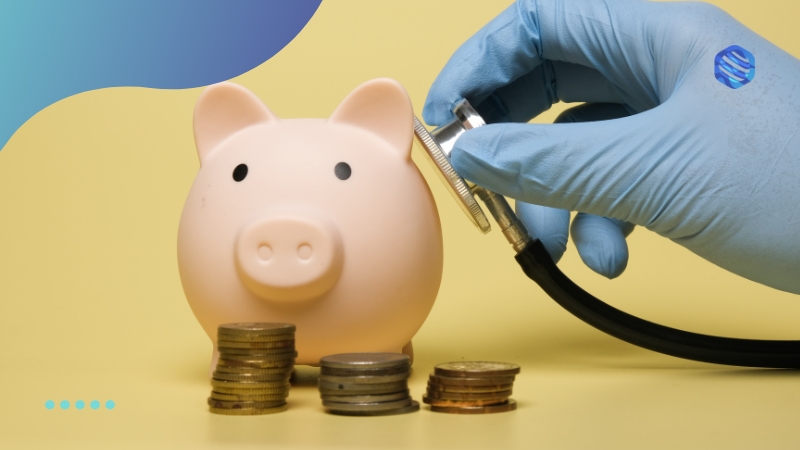A financial health checkup guide is an essential tool for anyone looking to assess and improve their financial well-being. At the start of each year or any time you experience significant life changes, it’s important to conduct a thorough review of your financial situation. Without regular evaluations, you might miss opportunities to enhance your financial stability or identify potential risks.
Moreover, using a financial health checkup guide provides clarity on areas that need attention, whether it’s budgeting, saving, or investing. With this structured approach, you can easily highlight strengths and weaknesses in your current financial standing. It allows individuals to make informed decisions and adjust their strategies for long-term success.
Finally, the financial health checkup guide is not just about reviewing your income or expenses. It encompasses a broader understanding of your overall financial landscape, including debts, assets, and future goals. Transitioning through different financial stages requires regular evaluations to ensure you’re on the right path to achieving your objectives.
Why a Financial Health Checkup is Important

1. Assessing Current Financial Situation
Conducting a financial checkup helps you take stock of your current financial state. This involves reviewing your income, expenses, debts, and assets to get a clear picture of where you stand. By regularly evaluating these elements, you can identify potential issues early and adjust accordingly.
2. Identifying Financial Goals
A crucial part of any financial health checkup is setting and reviewing your financial goals. Whether you’re saving for a home, preparing for retirement, or paying off debts, understanding your objectives ensures that your financial strategy aligns with your aspirations. This is the step where you assess if you’re on track or need to make adjustments.
Utilizing Government Resources for Financial Stability
Incorporating trusted resources is a crucial step in your financial health checkup guide. One such valuable resource is the official Consumer Financial Protection Bureau, which provides tools and advice on managing finances effectively.
From understanding credit to protecting against fraud, this government agency offers guidance that aligns perfectly with the goals of a comprehensive financial checkup. Leveraging these insights can help you stay informed and make sound financial decisions, ensuring long-term stability and protection.
Steps for a Thorough Financial Health Checkup
Step 1: Review Your Budget
A well-structured budget is the cornerstone of financial health. Start by reviewing your monthly income and expenses, making sure you’re living within your means. If your expenses exceed your income, it’s time to make cuts or explore ways to increase your earnings.
Step 2: Examine Debts and Liabilities
Next, take a close look at any debts, including loans, credit cards, and mortgages. Are you paying them off efficiently? Consider refinancing options or prioritizing high-interest debts to save money in the long term.
Step 3: Evaluate Savings and Investments
Savings and investments play a key role in your financial future. Evaluate your current savings plan and ensure you’re building an emergency fund. Additionally, review your investment portfolio to confirm it’s aligned with your financial goals and risk tolerance.
Step 4: Check Your Credit Score
A good credit score is crucial for securing loans and getting favorable interest rates. Make it a habit to review your credit report annually. Address any discrepancies and work on improving your score by reducing debts and paying bills on time.
Enhancing Your Financial Knowledge
As part of your financial health checkup guide, continuously improving your financial literacy is essential. Gaining a deeper understanding of how money works, from saving and investing to managing debts, can significantly improve your financial stability.
For those looking to expand their knowledge, there are several free financial education resources available online. These resources offer valuable insights on budgeting, credit management, and long-term financial planning, helping you make informed decisions and strengthen your overall financial health.
FAQ: Financial Health Checkup Guide
1. What is a financial health checkup?
A financial health checkup is a comprehensive evaluation of your financial situation, including your income, expenses, debts, assets, and future goals. It helps you identify areas of strength and weakness and make necessary adjustments to improve your financial stability.
2. How often should I perform a financial health checkup?
It’s recommended to perform a financial health checkup at least once a year or whenever you experience significant life changes, such as a job change, a major purchase, or a shift in financial goals.
3. What are the key components of a financial health checkup?
The key components include reviewing your budget, assessing debts and liabilities, evaluating your savings and investments, checking your credit score, and setting or reassessing financial goals.
4. Why is tracking my cash flow important?
Tracking cash flow ensures that your spending aligns with your income and helps you avoid debt. It also allows you to allocate money toward savings and investments, improving your overall financial health.
5. How can I build an emergency fund?
To build an emergency fund, set aside a portion of your monthly income in a separate savings account. Ideally, this fund should cover 3 to 6 months of living expenses to protect you during unexpected financial hardships.
6. What should I do if my debt is overwhelming?
If your debt feels overwhelming, start by prioritizing high-interest debts, such as credit cards. Consider debt consolidation or refinancing options to lower your payments, and create a repayment plan that fits your budget.
7. How can I improve my credit score?
To improve your credit score, focus on paying bills on time, reducing outstanding debts, and keeping your credit utilization low. Regularly checking your credit report for errors and addressing any discrepancies is also important.
8. Why is it important to review my retirement savings?
Reviewing your retirement savings ensures that you’re on track to meet your future financial goals. It allows you to adjust your contributions and investment strategies to ensure a secure and comfortable retirement.
Conclusion
A financial health checkup guide is an essential tool for anyone looking to gain control over their finances and plan for the future. By conducting regular reviews of your income, expenses, debts, and savings, you can ensure that your financial strategies are aligned with your goals.
Additionally, a financial checkup encourages long-term thinking. Whether it’s building an emergency fund, planning for retirement, or ensuring adequate insurance coverage, these steps provide security and peace of mind. Incorporating government.
In conclusion, maintaining financial health requires consistent effort and awareness. By following the principles outlined in this financial health checkup guide, you can build a strong financial foundation, adapt to changes in your financial situation, and achieve your long-term financial goals.


